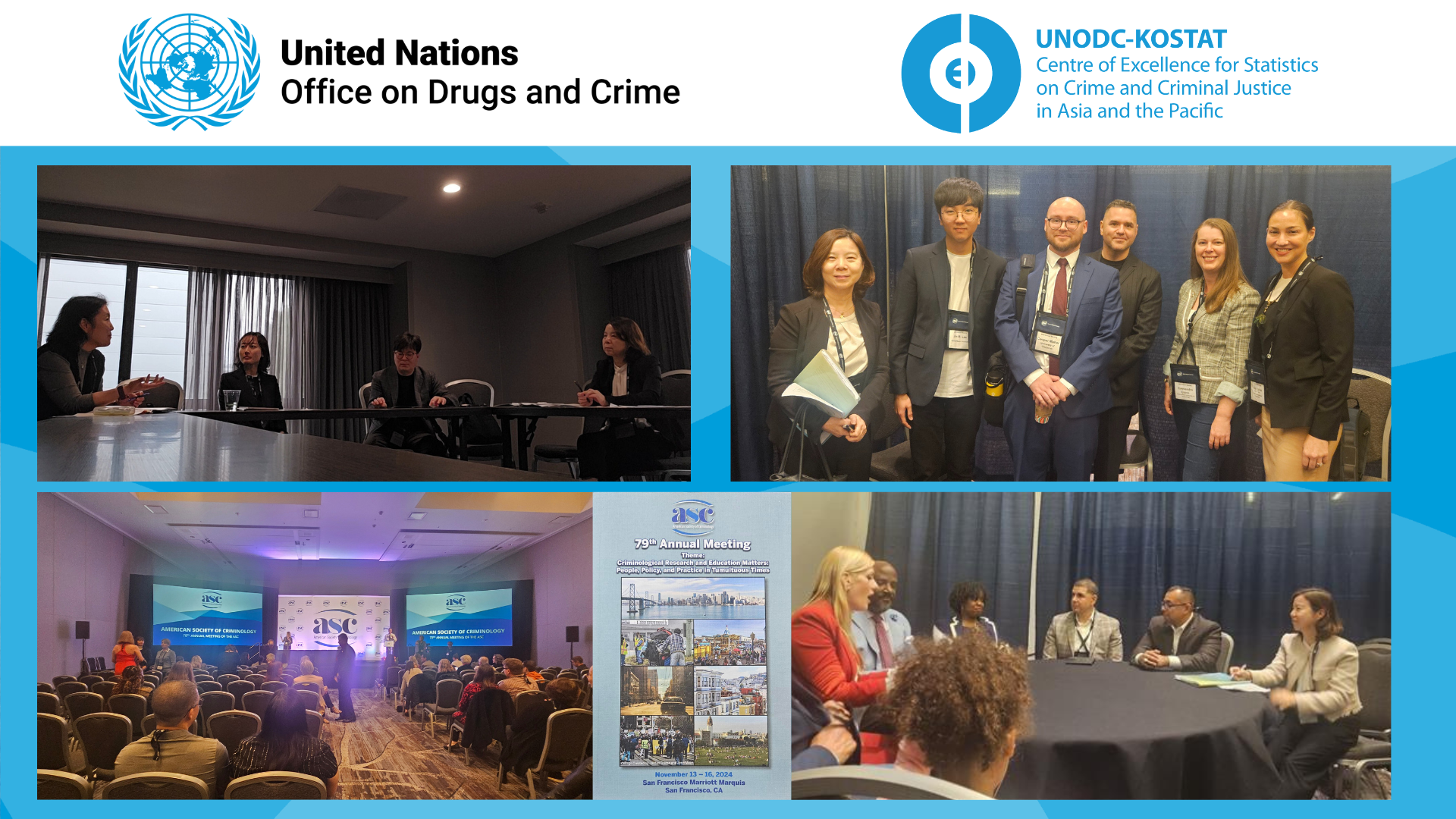
San Francisco (United States of America), 13-16 November 2024 – Every year, the American Society of Criminology (ACS), the largest organization focused on disseminating knowledge and scholarly research in the fields of crime and criminal justice, organizes an annual meeting and brings together criminologists, researchers, and policymakers around the world to exchange ideas on the latest trends and research in crime and criminal justice. The theme of the 79th Annual Meeting was “Criminological Research and Education Matters: People, Policy, and Practice in Tumultuous Times.”
Thousands of professionals discussed a wide range of topics, including the intersection of race, gender, and victimization, highlighting the need for a deeper understanding of marginalized groups. Cybercrime was one of the major themes, with sessions like “Charting the Future for Cybercrime Research” discussing advancements in the field, ranging from identity theft to AI-driven crime prevention tools. Experts emphasized the importance of cross-disciplinary collaboration between psychology, law, and computer science to address the evolving landscape of digital crime. This collaboration is especially critical as new threats, such as deepfakes, continue to emerge. Additionally, there was a strong emphasis on the importance of digital literacy and open-mindedness in order to effectively tackle the complexities of modern cybercrime.
Amid these discussions, Jonghee Choi, Coordinator of the UNODC-KOSTAT Centre of Excellence (CoE), convened a collaborative meeting centered on the development of a standardized framework to measure cybercrime. The main objective of this initiative is trifold:
The meeting included experts from the Korean Institute of Criminology and Justice (KICJ), the Seoul Institute, George Mason University, and the University of Alabama, who highlighted key gaps in cybercrime statistics and data collection methods. Key outcomes from the meeting included identifying the target users of the cybercrime framework; prioritizing the specific types of cybercrime such as financial fraud and child exploitation; and outlining a multi-stage development plan, which involves consultations at the international level, pilot studies, and continuous refinements.
Looking ahead, the CoE plans to further strengthen its global network of cybercrime experts and foster deeper discussions on the feasibility and practical application of various measurement frameworks. Insights from current research on cybercrime will be incorporated into future initiatives, ensuring that the international community is equipped to tackle the evolving challenges posed by cybercrime.
Through these collaborations, the CoE is poised to lead the way in shaping future global standards for cybercrime measurement, advancing the understanding of the ever-changing digital landscape, and developing effective strategies to counter this growing threat.
Further information on the CoE can be found here, X @CoE_UNODC and Facebook @UNODC.KOSTAT.CoE.